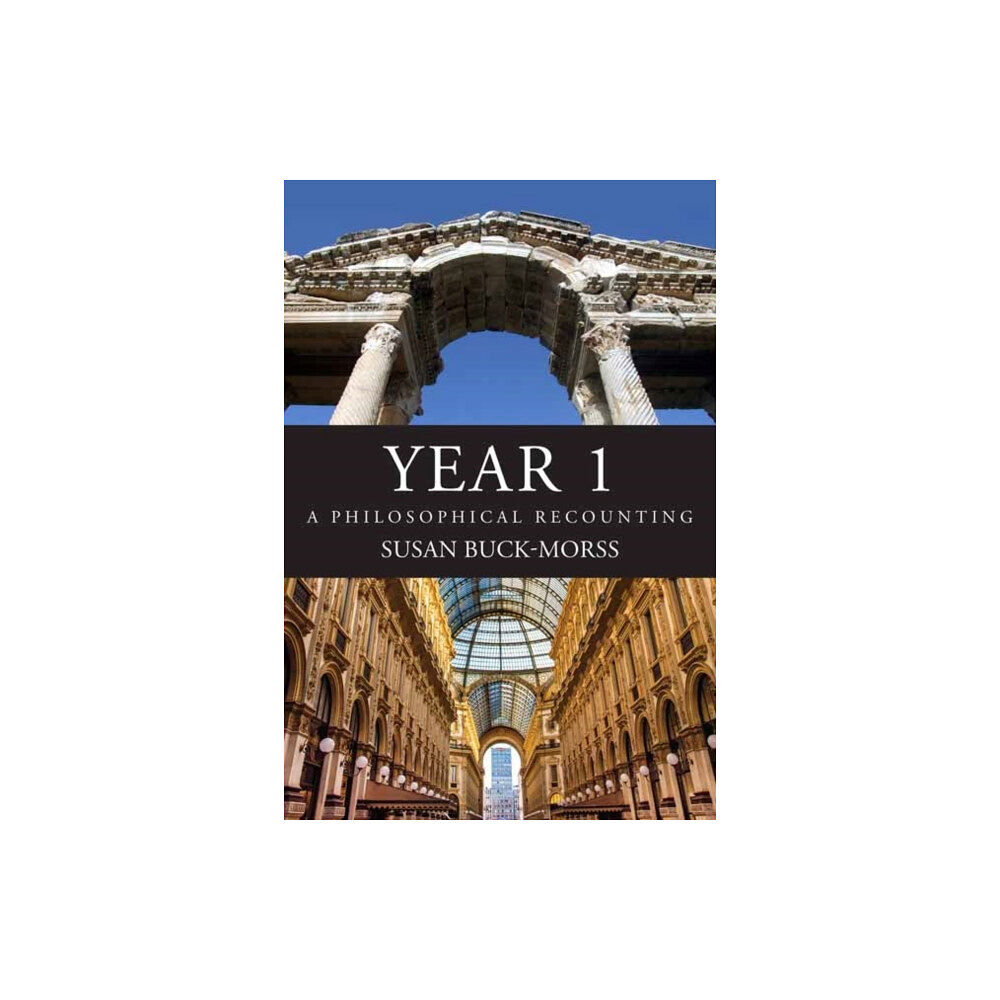- Hem
- Böcker
- Kurslitteratur
- Filosofi, Religion & Etik
- Year 1 (inbunden, eng)

Year 1 (inbunden, eng)
Reclaiming the first century as common ground rather than the origin of deeply entrenched differences: liberating the past to speak to us...
355 kr
389 kr
Bara 2 kvar
Skickas inom 4 - 5 vardagar
Fri frakt över 399:-
Snabb leverans
Alltid låga priser
Produktbeskrivning
Reclaiming the first century as common ground rather than the origin of deeply entrenched differences: liberating the past to speak to us in another way.
Conventional readings of antiquity cast Athens against Jerusalem, with Athens standing in for "reason" and Jerusalem for "faith." And yet, Susan Buck-Morss reminds us, recent scholarship has overturned this separationNaming the first century as a zero point--"year one"--that divides time into before and after is equally arbirtrary, nothing more than a convenience that is empirically meaningless. In YEAR 1, Buck-Morss liberates the first century so it can speak to us in another way, reclaiming it as common ground rather than the origin of deeply entrenched differences.
Buck-Morss aims to topple various conceptual givens that have shaped modernity as an episteme and led us into some unhelpful postmodern impassesShe approaches the first century through the writings of three thinkers often marginalized in current discourse: Flavius Josephus, historian of the Judaean war; the neo-Platonic philosopher Philo of Alexandria; and John of Patmos, author of Revelation, the last book of the Christian Bible.
Also making appearances are Antigone and John Coltrane, Plato and Bulwer-Lytton, al-Farabi and Jean Anouilh, Nicholas of Cusa and Zora Neale Hurston--not to mention Descartes, Kant, Hegel, Kristeva, and Derrida.
Buck-Morss shows that we need no longer partition history as if it were a homeless child in need of the protective wisdom of SolomonThose inhabiting the first century belong together in time, and therefore not to us.
Conventional readings of antiquity cast Athens against Jerusalem, with Athens standing in for "reason" and Jerusalem for "faith." And yet, Susan Buck-Morss reminds us, recent scholarship has overturned this separationNaming the first century as a zero point--"year one"--that divides time into before and after is equally arbirtrary, nothing more than a convenience that is empirically meaningless. In YEAR 1, Buck-Morss liberates the first century so it can speak to us in another way, reclaiming it as common ground rather than the origin of deeply entrenched differences.
Buck-Morss aims to topple various conceptual givens that have shaped modernity as an episteme and led us into some unhelpful postmodern impassesShe approaches the first century through the writings of three thinkers often marginalized in current discourse: Flavius Josephus, historian of the Judaean war; the neo-Platonic philosopher Philo of Alexandria; and John of Patmos, author of Revelation, the last book of the Christian Bible.
Also making appearances are Antigone and John Coltrane, Plato and Bulwer-Lytton, al-Farabi and Jean Anouilh, Nicholas of Cusa and Zora Neale Hurston--not to mention Descartes, Kant, Hegel, Kristeva, and Derrida.
Buck-Morss shows that we need no longer partition history as if it were a homeless child in need of the protective wisdom of SolomonThose inhabiting the first century belong together in time, and therefore not to us.
| Format | Inbunden |
| Omfång | 456 sidor |
| Språk | Engelska |
| Förlag | MIT Press Ltd |
| Utgivningsdatum | 2021-04-13 |
| ISBN | 9780262044875 |
Specifikation
Böcker
- Format Inbunden
- Antal sidor 456
- Språk Engelska
- Utgivningsdatum 2021-04-13
- ISBN 9780262044875
- Förlag MIT Press Ltd
Leverans
Vi erbjuder flera smidiga leveransalternativ beroende på ditt postnummer, såsom Budbee Box, Early Bird, Instabox och DB Schenker. Vid köp över 399 kr är leveransen kostnadsfri, annars tillkommer en fraktavgift från 39 kr. Välj det alternativ som passar dig bäst för en bekväm leverans.
Betalning
Du kan betala tryggt och enkelt via Avarda med flera alternativ: Swish för snabb betalning, kortbetalning med VISA eller MasterCard, faktura med 30 dagars betalningstid, eller konto för flexibel delbetalning.
Specifikation
Böcker
- Format Inbunden
- Antal sidor 456
- Språk Engelska
- Utgivningsdatum 2021-04-13
- ISBN 9780262044875
- Förlag MIT Press Ltd
